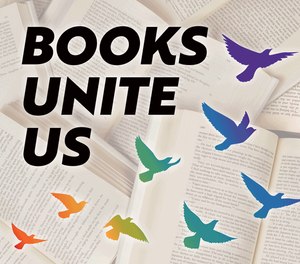
There are many organizations and funders that focus on school advocacy and literacy grants
"Once you learn to read, you will be forever free." -Frederick Douglass
Libraries are a gateway to knowledge and culture; they help shape new perspectives, which are crucial to an innovative society. In 2019, public libraries in the United States were visited 1.2 billion times. There are more public libraries (over 16,000) in our country than there are McDonald’s. More than half of Americans in public library service areas are members of their local library. A poll completed by the American Library Association found that 94% of respondents agreed that public libraries improve the quality of life within a community.
However, there is a culture war in our country and books and libraries are under attack. Booksellers and librarians are constantly defending people’s freedom to read. Activists are demanding the removal of controversial books, librarians are being falsely accused of grooming children, and free speech defenders are crying censorship. Many politicians and elected officials are hopping on the censorship bandwagon; they want to dismantle public programs by limiting our access to information, which is how humans learn to deeply consider issues.
The Kids’ Right to Read Project was created by the National Coalition Against Censorship (NCAC) and offers support and direct advocacy to school libraries. They created a guide for students and parents on how to fight book censorship. The guide states:
“The First Amendment guarantees our right to read whatever we choose, but the law also protects the right and responsibility of parents to guide their own children’s learning and book choices. No parent has the right to decide what another person’s child should or shouldn’t read.”
The NCAC also wrote a book titled A Kids Book About Banned Books that “ explains what book banning is and empowers adults and young readers to have thoughtful conversations on how reading and having access to information and diverse ideas help foster meaningful connections through education and lifelong learning.”
Banned Books Week was started by the American Library Association (ALA) in 1982 and is the annual celebration of our freedom to read. In 2021, the ALA tracked 729 challenges in libraries, schools, and universities. The challenges resulted in 1,597 individual book challenges or removals; the highest number of attempted book bans since the ALA began compiling the list in 2002. Most of the challenged books were written by Black or LGBTQ authors and/or featuring BIPOC or LGBTQ characters.
The Top 10 Challenged Books of 2021 are:
There are many organizations and funders that help fight against censorship and focus on school advocacy and literacy grants:
When individuals show up and support libraries and education, censorship and the erosion of our freedoms in a democratic country fail to win.
Copyright © 2025 EducationGrantsHelp.com. All rights reserved.

